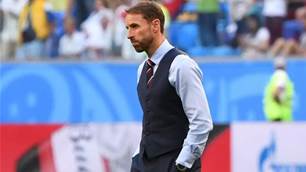He led Sweden to the World Cup final and masterminded a famous win over England, yet George Raynor struggled to get a decent job in his homeland. FFT tells his remarkable tale
Carver and Raynor's revolutionary approach to training won them the admiration of players used to far more primitive methods. "They changed the old attitudes towards training," says former Coventry midfielder Lol Hardy. "They were so far advanced - we started training the way that players do today. All of a sudden we were wearing continental tracksuits and sandals in the shower - the way they changed everything was unbelievable."
But sadly, the experiment was not a success. Carver would leave just months into his contract to head back to Italy, while Raynor only stayed until the end of the season. By that time, Coventry were no nearer promotion and while the side became known for flowing football at Highfield Road, away from home they were, according to Brown, "kicked to bits".
Raynor's dalliance with football in his home country had once again turned sour. He began coaching Hungarian refugees with the National Coal Board, when a call came in that would once again thrust him onto the world stage. Sweden - desperate to avoid humiliation at a World Cup hosted in their own country - were begging Raynor to return. And with the likes of Liedholm once again eligible for the national side (thanks to the lifting of a ban on professional players), Raynor took little persuading.
"The players in that World Cup are legends," says Lagerbäck. "Everyone in football knows their names - they were my idols."
The team that Raynor moulded began as unfancied outsiders in a tournament at which England, still under the management of Winterbottom, once again failed to make an impact, losing a play-off to Russia after the teams finished level on points in the group stages. Raynor, meanwhile, watched his side swat aside Mexico and Hungary before a 0-0 draw with Wales (who would lose to Brazil in the quarter-finals) set up a last-eight date with England's conquerors, Russia. A 2-0 win followed by a 3-1 victory over reigning champions West Germany in the semi-finals meant that only Brazil stood between Sweden and World Cup glory.
"The excitement in the country just grew and grew," says Lagerbäck. "The first time I ever watched television was when Sweden played the semi-final against West Germany. After that match the players travelled by train from Stockholm to Gothenburg and were mobbed at each station by supporters - it was an incredible time for the whole country."
Although the majority of English journalists flew home from Sweden following England's defeat, there were some who were beginning to appreciate the impact that Raynor was having on a side that had been written off throughout the tournament. "The Swedish team, for all its individual ability, has undoubtedly been helped by Raynor's leadership," wrote H A Pawson in The Guardian. "His instructions to his players are simple and direct, and even at press conferences, where others are non-committal or evasive, he is frank and clear."
Raynor believed that an early goal would see Brazil "panic all over the show", but although it was provided by Liedholm after just five minutes, Vicente Feola's side kept their heads and ran the hosts ragged as Garrincha and a 17-year-old Pele inspired them to a 5-2 win. "We read about Pele but the biggest player was Garrincha - everybody wanted to be Garrincha," says Lagerbäck.
Ever the pragmatist, Raynor took defeat with typical good grace and headed back home in the expectation that his achievements would have alerted some of England's top clubs. But even with his undoubted foresight he could not have predicted where he would end up. "George bought a bungalow overlooking the North Sea in Skegness," recalls former Skegness Town player Mick French. "He couldn't get a job anywhere so the owner brought him in to coach the first team, who were in the Midland League at the time."
Despite their lowly status, the club's owner, Harold Swift, was a wealthy benefactor (although Raynor would be paid just £10 a week) and still offered the coach the opportunity to live the high life. "Skegness went to play a team in Northumberland and travelled up in first class," recalls French. "The Arsenal team were on the same train but were sat in economy."
A year later, Raynor, coaching Sweden alongside his job at Skegness, would lead his adopted country to a 3-2 victory over England at Wembley. "I feel like a football fifth columnist [a spy]," he told reporters in a post-match interview as Sweden become only the second foreign nation to beat England at home. "I got some sort of satisfaction out of the result, but not enough. I would much rather have been doing the same sort of thing for the country of my birth. I want to work in England. All I consider is that the people of England have had their chance."
When Raynor died, aged 78 in 1985, incredibly there was no mention of his passing in the English press and no delegation from the FA beating a path to his funeral to say a final goodbye. According to French, the Yorkshireman even died wearing his Swedish World Cup tracksuit.
A thoroughbred in Scandinavia but a mongrel in England - for Raynor, it was a dog's life in his own country until the very end.
Related Articles

World Cup favourites England have one gaping question left to answer

Rampant England reach Women's Euros final













